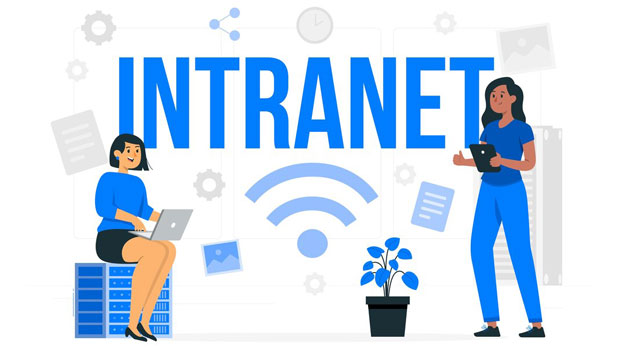In the world of online privacy and security, proxies play a critical role in masking your IP address and providing anonymity. PYPROXY, a Python-based proxy management tool, supports the use of sock s5 proxies, which offer a range of advantages, especially when it comes to static SOCKS5 proxies. These proxies provide users with a stable, secure connection and offer numerous benefits for various applications, from web scraping to improving security in sensitive transactions. This article will delve into the key advantages of using static SOCKS5 proxies with PyProxy, outlining how they can enhance privacy, improve connection stability, and streamline workflows. Understanding Static SOCKS5 ProxiesTo fully appreciate the advantages of using static SOCKS5 proxies with PyProxy, it’s essential first to understand what SOCKS5 proxies are and what makes them “static.” SOCKS5 is the latest version of the SOCKS (Socket Secure) protocol, known for its flexibility in handling different types of internet traffic. Unlike its predecessors, SOCKS5 can support various protocols, including HTTP, FTP, and UDP, which makes it versatile in many scenarios.A static socks5 proxy refers to a proxy that provides a fixed IP address for an extended period. This consistency can be beneficial in many use cases, as it allows for more predictable connections, especially when interacting with websites that require stable access from the same IP. This contrasts with dynamic proxies, where IP addresses can change frequently, leading to potential issues such as blocked access or inconsistent performance.Improved Privacy and AnonymityOne of the most significant advantages of using static SOCKS5 proxies with PyProxy is the enhanced privacy and anonymity they offer. When browsing the internet or performing activities such as web scraping, data scraping, or automated testing, maintaining anonymity is crucial to protect sensitive information. By routing internet traffic through a static SOCKS5 proxy, users can effectively mask their real IP addresses, making it difficult for websites or third parties to track their online behavior.With PyProxy’s ability to easily integrate static SOCKS5 proxies, users can set up multiple proxy connections to ensure that their identity remains hidden and secure. This is particularly useful when accessing geo-restricted content, engaging in market research, or performing other online tasks where privacy is paramount. Furthermore, using a static proxy reduces the chances of IP address rotation, providing a more consistent and long-term solution to online privacy challenges.Improved Connection StabilityStatic SOCKS5 proxies offer enhanced connection stability compared to dynamic proxies. In many online activities, especially those involving large data transfers or time-sensitive operations, maintaining a stable connection is essential. static proxies ensure that the user’s IP remains the same over extended periods, which is crucial for tasks like web scraping, running automated bots, or managing long-term projects. In contrast, dynamic proxies that frequently change IP addresses can lead to session disruptions, particularly for applications that require continuous, uninterrupted connections. This is a common issue in web scraping, where multiple requests to a target website are necessary. Frequent IP changes may result in rate limiting or even blocking of the user’s requests. By using static SOCKS5 proxies with PyProxy, users can maintain consistent access, reducing the risk of encountering connection issues or being flagged as suspicious by websites.Reduced Risk of IP Blocks and Rate LimitingAnother notable advantage of static SOCKS5 proxies is the reduced risk of being blocked or throttled by websites. When using a dynamic proxy service, the frequent change of IP addresses can often trigger suspicion, leading to IP blocks, CAPTCHAs, or rate limiting. Websites often monitor traffic patterns and flag any unusual behavior, such as requests from multiple different IP addresses within a short time frame.With static SOCKS5 proxies, the same IP address is used over an extended period, making it less likely that the website will detect suspicious behavior. This is particularly important for tasks like web scraping, where consistent access to the same site is crucial for gathering data without interruptions. The reduced risk of being flagged helps maintain the success of online operations, ensuring that users can continue their tasks without running into unnecessary hurdles.Enhanced Speed and PerformanceWhen it comes to internet proxies, speed and performance are critical factors that can make or break the user experience. Static SOCKS5 proxies can offer improved speed and lower latency compared to dynamic proxies. This is because static proxies typically provide more direct and reliable connections, as they avoid the need for constant IP address switching, which can introduce delays.For users relying on high-speed internet access, such as those involved in large-scale data collection or content streaming, the stability of a static SOCKS5 proxy ensures smoother and faster browsing experiences. With PyProxy’s efficient proxy management system, users can optimize their proxy settings to take full advantage of the enhanced speed and performance provided by static SOCKS5 proxies, resulting in better overall productivity.Cost-Effectiveness for Long-Term UseWhile dynamic proxies may seem like a cheaper option in the short term, static SOCKS5 proxies can be more cost-effective in the long run. The consistency and stability provided by static proxies mean that users are less likely to encounter disruptions, such as IP blocks or rate limiting, which can lead to additional expenses in terms of having to purchase new proxy ips or resolve connection issues.By opting for a static SOCKS5 proxy setup, users can avoid the hassle and cost of continually switching proxies or dealing with the fallout of using unreliable dynamic proxies. For businesses or individuals who require a steady, long-term internet connection, investing in static SOCKS5 proxies through PyProxy can result in significant savings in both time and money.Simplified Management with PyProxyPyProxy offers a user-friendly interface for managing static SOCKS5 proxies, making it easier for individuals and businesses to integrate proxy solutions into their workflows. By using PyProxy, users can automate many tasks associated with proxy management, such as IP rotation (if needed), connection tracking, and even performance monitoring. This streamlines the entire process, reducing the need for manual intervention and ensuring that proxies are always functioning optimally.Additionally, PyProxy’s ability to integrate with other Python tools and libraries enhances its versatility. Users can build custom scripts or automation workflows that leverage static SOCKS5 proxies for specific applications, such as web scraping or data collection, making it a valuable tool for developers, researchers, and businesses.In summary, using static SOCKS5 proxies with PyProxy provides numerous benefits, including enhanced privacy and anonymity, improved connection stability, reduced risk of IP blocks, better speed and performance, and long-term cost savings. Whether you’re running automated processes, scraping data, or simply looking to maintain online anonymity, static SOCKS5 proxies offer a reliable, secure, and efficient solution. By leveraging PyProxy’s robust proxy management capabilities, users can maximize the advantages of static SOCKS5 proxies and ensure a seamless and secure online experience.
Sep 20, 2025



































































